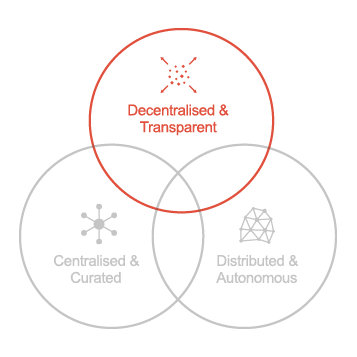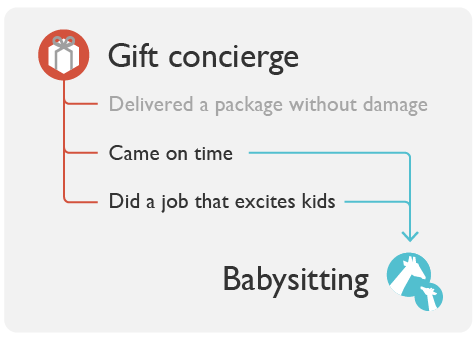
In the near future, a variety of information, including personal activities, will be recorded, managed, and utilized to build a relationship between individuals and organizations. Through "TRUST/2030" project, we have looked at how changes in society may change the way we live our lives and the impact these changes may have on trust in the society of 2030. We came up with 3 speculative societies. On of them is "Decentralised & Transparent" society where individuals are connected directly. In the society, there is an increasing number of gig workers who are not governed by traditional, long-term employer-employee relationships. However, it would not be easy for gig workers to get a job offer unless they can demonstrate their skills and performance. Clients would also need to prove their trading history. In this society, what kind of information would be exchanged and how would the information help individuals trust each other?
Gig workers can create brand new jobs, maximizing their various skills. Currently, most of the jobs offered online are rated by stars. However, simple evaluation like star rating would not help them gain trust from potential clients to get another job offer. What if there is a system that allows them to record their work history precisely and to combine their experience to develop trust?
Let's say a gift concierge prepared a present and delivered it on a kid's birthday. Based on the evaluation from the client, fact-based information, such as "Delivered a package without damage" "Came on time" and "Did a job that excites kids" are added to her experience. By combining her experience, she may be able to get a baby sitting job.


A gig worker puts on her ID card which describes her job at that moment. It is not a company logo or a job title that clients want to see to trust the worker.

A gig worker's work history, including attitude and achievement, is recorded precisely, so she can use the data set to get another job offer.
From a client perspective, you do not know who you should hire if there are many workers with similar profiles and experience. On job-matching platforms, you can see comments from clients to workers. However, it is not easy to find comments that help you decide who you hire for the job. Then, what if a system makes it possible for clients to send simple but useful comments to workers with appreciation? There might be much more comments on the personality and quality of workers. For example, a gift concierge sent a kid a present on her birthday. The client left a comment that the worker "understands children" very well. The worker may be able to get a babysitting job with the evidence.

Just exchanging fact information may cause misunderstanding. For both workers and clients, it is important to understand the background and context of the information to decide who to trust.
Let's say you are a baby sitter and your client's child got a scratch while you were on duty. Your work history now includes a negative fact that "child got insured" even if it was not your fault. When such a trouble occurred, this system recommends you to discuss until you reach some level of agreement. Having a shared understanding of the background and the context helps you build mutual trust. What if the child admits that she got a scratch because she was too careless? The worker may send the client a message saying that she is a "brave child." Sometimes you can turn a negative into a positive to develop trust. They would make the best use of objective data on their performance and evaluation, and control it on their own to build trust relationship.
